第1章 PREFACE(1)
Lord Macaulay always looked forward to a publication of his miscellaneous works, either by himself or by those who should represent him after his death. And latterly he expressly reserved, whenever the arrangements as to copyright made it necessary, the right of such publication.
The collection which is now published comprehends some of the earliest and some of the latest works which he composed. He was born on 25th October, 1800; commenced residence at Trinity College, Cambridge, in October, 1818; was elected Craven University Scholar in 1821; graduated as B.A. in 1822; was elected fellow of the college in October, 1824; was called to the bar in February, 1826, when he joined the Northern Circuit; and was elected member for Calne in 1830. After this last event, he did not long continue to practise at the bar. He went to India in 1834, whence he returned in June, 1838. He was elected member for Edinburgh, in 1839, and lost this seat in July, 1847; and this (though he was afterwards again elected for that city in July, 1852, without being a candidate) may be considered as the last instance of his taking an active part in the contests of public life. These few dates are mentioned for the purpose of enabling the reader to assign the articles, now and previously published, to the principal periods into which the author's life may be divided.
The admirers of his later works will probably be interested by watching the gradual formation of his style, and will notice in his earlier productions, vigorous and clear as their language always was, the occurrence of faults against which he afterwards most anxiously guarded himself. A much greater interest will undoubtedly be felt in tracing the date and development of his opinions.
The articles published in Knight's Quarterly Magazine were composed during the author's residence at college, as B.A. It may be remarked that the first two of these exhibit the earnestness with which he already endeavoured to represent to himself and to others the scenes and persons of past times as in actual existence. Of the Dialogue between Milton andCowley he spoke, many years after its publication, as that one of his works which he remembered with most satisfaction. The article on Mitford's Greece he did not himself value so highly as others thought it deserved. This article, at any rate, contains the first distinct enunciation of his views, as to the office of an historian, views afterwards more fully set forth in his Essay, upon History, in the Edinburgh Review. From the protest, in the last mentioned essay, against the conventional notions respecting the majesty of history might perhaps have been anticipated something like the third chapter of the History of England. It may be amusing to notice that in the article on Mitford, appears the first sketch of the New Zealander, afterwards filled up in a passage in the review of Mrs Austin's translation of Ranke, a passage which at one time was the subject of allusion, two or three times a week, in speeches and leading articles. In this, too, appear, perhaps for the first time, the author's views on the representative system. These he retained to the very last; they are brought forward repeatedly in the articles published in this collection and elsewhere, and in his speeches in parliament; and they coincide with the opinions expressed in the letter to an American correspondent, which was so often cited in the late debate on the Reform Bill.